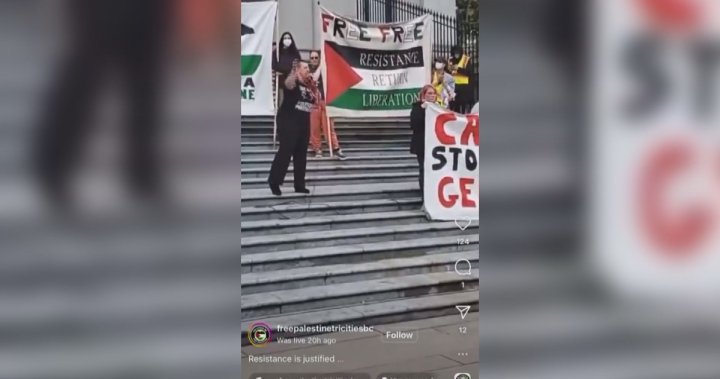More than a year after Charlotte Kates, a Vancouver-based activist, was arrested for comments made at a pro-Palestinian protest, British Columbia prosecutors have yet to decide whether to pursue hate speech charges. Kates’ remarks—praised internationally and criticized domestically—sparked controversy for praising Hamas and calling for the removal of certain groups from terrorism lists. The delay in filing charges has drawn sharp criticism from Canadian Jewish organizations, who question the reasons behind the prolonged process and express concern over public safety, social cohesion, and the implications for freedom of expression under Canadian law.
The case of Charlotte Kates has become a focal point in discussions about the boundaries of free speech and the legal system’s response to alleged hate speech in Canada. Arrested more than a year ago following her participation in a pro-Palestinian demonstration in Vancouver, Kates made statements that elicited a wide spectrum of reactions. International observers have at times lauded her for highlighting the Palestinian cause, while many within Canada have condemned her remarks as inflammatory and supportive of terrorism, particularly due to her praise of Hamas and calls for the revision of terrorism designations.
Prolonged Legal Review and Its Implications
Since her arrest, British Columbia prosecutors have been deliberating whether to formally lay hate speech charges against Kates, a decision that remains pending. Legal experts note that such delays are uncommon in prosecutions of this nature, suggesting that the complexities involved in the case may necessitate careful consideration of legal thresholds for hate speech, evidentiary standards, and constitutional protections of free expression.
Critics of the delay argue that the extended period without resolution undermines public confidence in the justice system’s ability to address messages that could incite hatred or violence. Canadian Jewish organizations have publicly expressed unease, emphasizing the importance of timely legal action to maintain social peace and protect vulnerable communities from potentially harmful rhetoric.
Community and Organizational Responses
The Jewish Community Relations Council and other advocacy groups have issued statements calling for transparency in the prosecutorial process and urging authorities to clarify the basis for the postponement. They contend that the delay may be perceived as tolerance of speech that threatens communal harmony and could inadvertently embolden similar expressions.
Conversely, civil liberties organizations caution against rushing to judgment, highlighting the necessity of safeguarding robust free speech rights unless clear and direct harm can be demonstrated. They underscore that Canadian law carefully balances hate speech prohibitions with constitutional freedoms, requiring precise legal standards to be met before charges are filed.
Legal Context and Potential Outcomes
The legal framework governing hate speech in Canada is anchored in the Criminal Code, which prohibits public incitement of hatred against identifiable groups where such incitement is likely to lead to a breach of the peace. Prosecutors must assess whether Kates’ comments meet these criteria, factoring in context, intent, and impact.
Should charges be laid, the case could set significant precedents regarding freedom of expression in the context of politically sensitive issues, particularly those surrounding ongoing international conflicts. Legal observers are closely monitoring developments, noting that the case could influence how authorities handle similar speech-related prosecutions in the future.
Conclusion
The ongoing delay in deciding on hate speech charges against Charlotte Kates continues to generate debate across legal, political, and community spheres. As British Columbia prosecutors deliberate, the outcome will have important ramifications for the intersection of free expression, public safety, and social cohesion in Canada. Stakeholders from diverse backgrounds await clarity, underscoring the delicate balance between upholding constitutional rights and addressing speech that may threaten communal harmony.
Conclusion
The unresolved status of potential hate speech charges against Charlotte Kates highlights the challenges faced by Canadian legal authorities in navigating the fine line between protecting free expression and addressing speech that may incite hatred or violence. The protracted review period has sparked criticism from community organizations concerned about public safety and social cohesion, while civil liberties advocates emphasize the need for rigorous legal standards to prevent undermining constitutional rights. The eventual decision by British Columbia prosecutors will not only affect the individuals involved but may also shape future approaches to speech-related cases in politically sensitive contexts, reflecting broader societal values around tolerance, justice, and freedom of expression in Canada.

